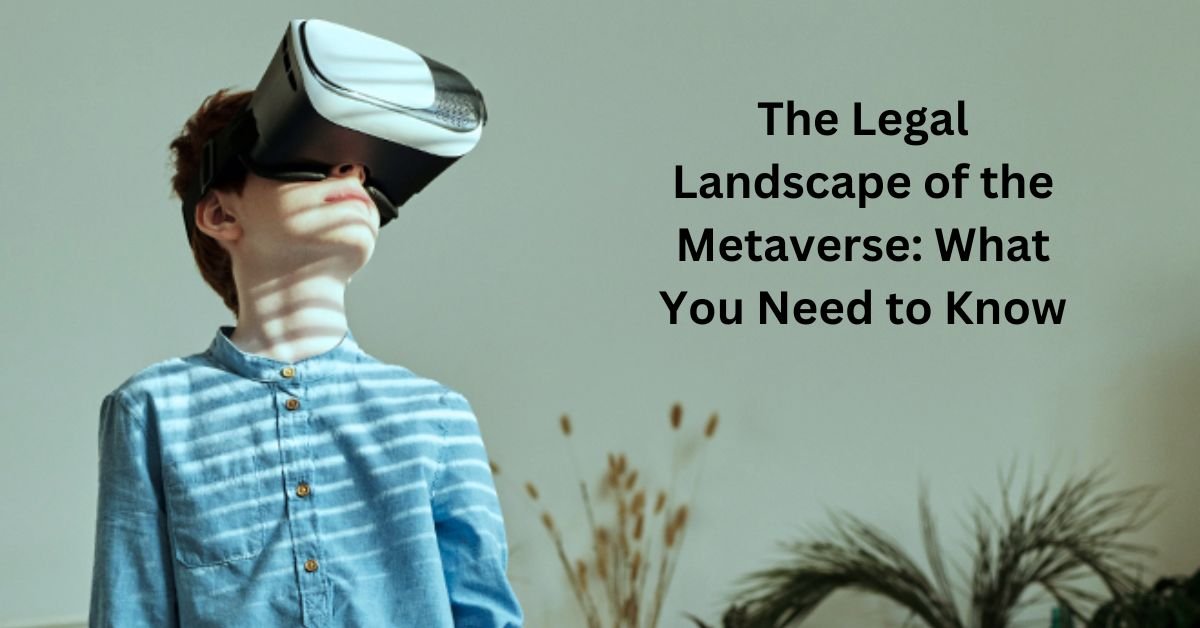As the metaverse continues to gain traction, it brings with it a host of legal considerations and challenges that both users and investors need to navigate. The legal landscape of the metaverse is complex and evolving, reflecting the unique nature of this digital frontier. Understanding the key legal aspects is essential for ensuring compliance and protecting your interests in this emerging space.
1. Intellectual Property Rights
Intellectual Property (IP) rights are a crucial consideration in the metaverse. These rights protect creations of the mind, such as inventions, literary and artistic works, designs, symbols, and names. In the metaverse, IP issues can arise in several ways:
- Ownership of Digital Assets: Ownership and rights over virtual goods, such as NFTs, digital art, and virtual real estate, must be clearly defined. NFTs, for instance, often come with specific terms regarding usage and reproduction rights.
- Trademark Infringement: Users and companies need to be cautious about using trademarks within the metaverse. Unauthorized use of trademarks can lead to legal disputes.
- Copyright Issues: Digital content creators must ensure their work is protected and that they are not infringing on others’ copyrights. Similarly, users should be aware of the legal ramifications of using or sharing copyrighted content in the metaverse.
2. Data Privacy and Security
Data privacy and security are critical concerns in the metaverse. As users interact with virtual environments, their personal data and activities are collected, raising several legal issues:
- Data Protection Regulations: Compliance with data protection laws, such as the General Data Protection Regulation (GDPR) in Europe or the California Consumer Privacy Act (CCPA) in the United States, is essential. These laws govern how personal data is collected, stored, and used.
- Cybersecurity: Ensuring robust cybersecurity measures is crucial to protect users’ data from breaches and cyber-attacks. Companies operating in the metaverse must implement strong security protocols to safeguard information.
3. Virtual Real Estate and Property Rights
Virtual real estate is a significant investment area in the metaverse, but it also brings unique legal challenges:
- Property Ownership: Legal frameworks for virtual property ownership are still developing. It’s important to understand the terms of service and ownership rights provided by metaverse platforms.
- Land Use Regulations: Just as with physical real estate, there may be rules governing the use and development of virtual land. These regulations can vary between different metaverse platforms.
4. Financial Transactions and Cryptocurrencies
Financial transactions within the metaverse often involve cryptocurrencies and digital assets, which have their own set of legal considerations:
- Regulatory Compliance: Cryptocurrencies are subject to varying degrees of regulation depending on the jurisdiction. Ensure compliance with financial regulations and anti-money laundering (AML) laws.
- Tax Implications: Profits from virtual transactions, such as the sale of NFTs or virtual property, may be subject to taxation. It’s important to understand the tax implications in your jurisdiction and maintain accurate records.
5. User Agreements and Terms of Service
User agreements and terms of service govern the relationship between users and metaverse platforms. These documents outline the rules, rights, and obligations for participants:
- Terms and Conditions: Read and understand the terms of service of any metaverse platform you use. These agreements often include important information about IP rights, content moderation, and dispute resolution.
- Dispute Resolution: Know the mechanisms for resolving disputes, which may include arbitration or mediation processes outlined in the user agreement.
6. Regulatory and Legal Challenges
The legal landscape of the metaverse is still evolving, and regulatory frameworks are being developed to address new challenges:
- Jurisdictional Issues: The global nature of the metaverse can create jurisdictional complexities. Different countries may have varying regulations that affect users and businesses operating in the metaverse.
- Legislation Updates: Stay informed about updates and changes in legislation that may impact the metaverse. As technology evolves, so too will legal frameworks.
7. Emerging Legal Trends
Several emerging trends are shaping the legal landscape of the metaverse:
- Digital Identity: The concept of digital identity is becoming increasingly important, with legal considerations around its management and protection.
- Decentralization: The rise of decentralized platforms and applications (dApps) presents new legal challenges, particularly around governance and regulation.
Conclusion
The legal landscape of the metaverse is complex and multifaceted, requiring careful consideration of intellectual property, data privacy, financial transactions, and user agreements. As this digital frontier continues to develop, staying informed and seeking legal advice when necessary will be key to navigating the challenges and opportunities of the metaverse.
By understanding these legal aspects, you can better protect your interests and ensure compliance as you engage with this exciting new digital realm.
